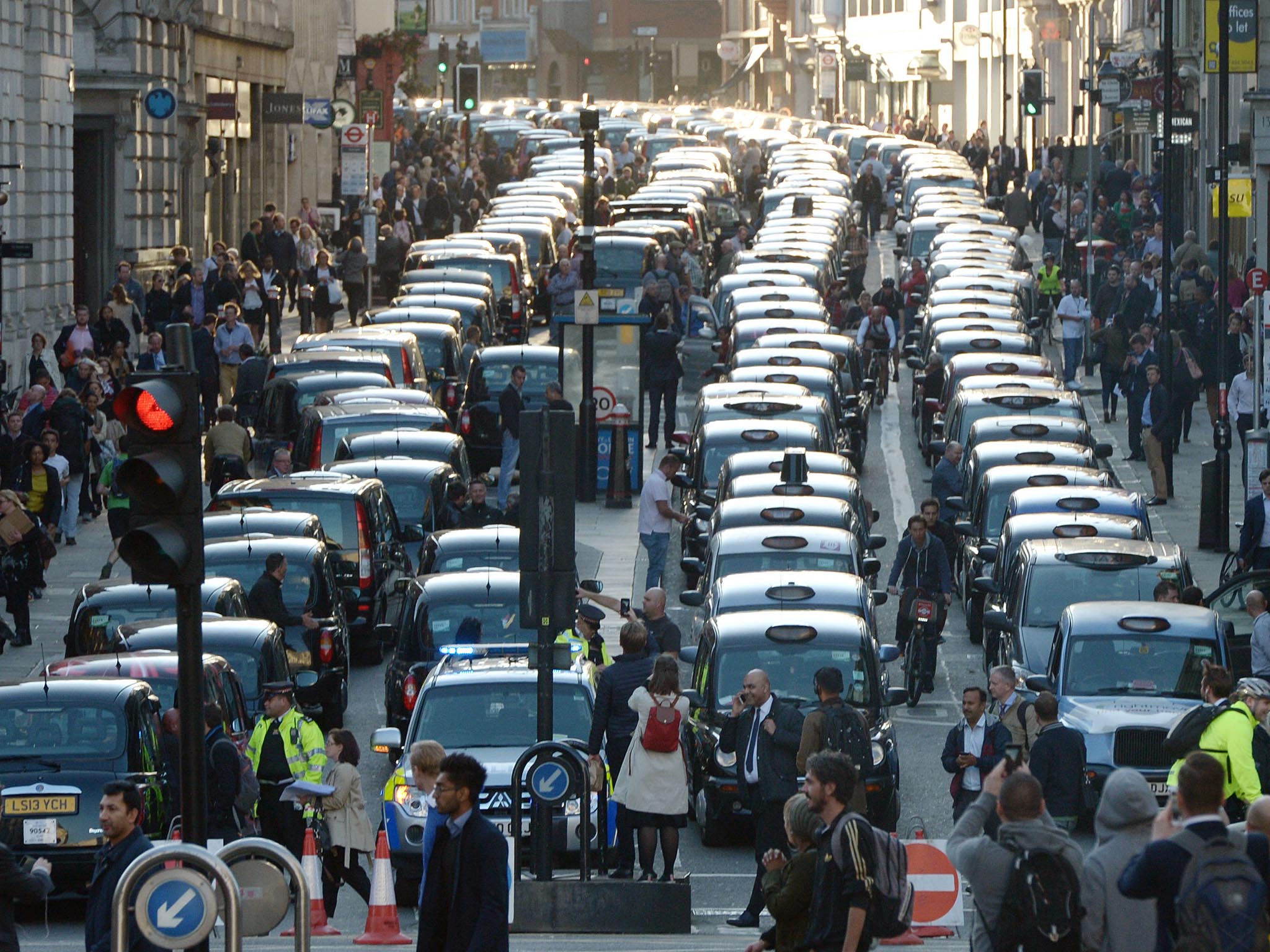Uber London ban: Risk of job losses for 40,000 drivers highlights vulnerabilities of gig economy
Uber has repeatedly found itself in the crosshairs of campaigners and unions over the way that it treats its drivers

Transport for London’s decision to strip Uber of its licence to operate in the city casts a fresh light on the risks of working in the gig economy.
Some 40,000 people are currently licenced to operate for the San Francisco-based company in London. Uber has around three weeks to appeal TfL’s shock decision not to renew its licence after 30 September.
If no agreement is reached, the company faces being barred from servicing its 3.5 million customers, threatening the livelihoods of its massive fleet of drivers.
“[The decision] highlights the vulnerability of gig economy workers, because they are classed as ‘workers’ rather than employees, so there will be no right to a redundancy payment and no obligation to consult,” said Nick Elwell-Sutton, an employment partner at London-based law firm Clyde & Co.
In addition to fighting numerous legal battles in the US, the UK and elsewhere, Uber has repeatedly found itself in the crosshairs of campaigners and unions over the way that it treats its drivers.
In a landmark case late last year – that Uber is currently appealing – a UK tribunal ruled that the company must treat its drivers as employees, pay them the minimum wage and provide holiday pay.
But on Friday lawyers said that TfL’s decision underscores that much more still needs to be done to ensure workers’ rights, especially as the gig economy continues to flourish.
Sarah Calderwood, employment partner at Slater Heelis LLP, said that although Uber workers are entitled to some rights as a result of the tribunal, they still do not enjoy the protected status of employees.
She said that this means that if Uber ends its arrangement with the drivers, they will generally not be able to bring unfair dismissal claims, will not be able to claim statutory redundancy pay and will not be entitled to any notice pay, unless they have a contract with the company that specifically stipulates they are entitled to these benefits.
In July, Matthew Taylor, a former policy chief to Tony Blair and chief executive of the Royal Society of Arts, published a detailed review into changing working practices in the UK and what must be done to crack down on unfair practices.
Some workers’ rights groups praised it as a step in the right direction, but others slammed it as inadequate.
“Whatever the Uber appeal result, there will be plenty more battles ahead for people working in the gig economy. Each case will depend on its facts, and the law in this area is far from clear,” said Matt Gingell, a partner at law firm Gannons, specialising in employment law.
“Let’s hope that Matthew Taylor’s recommendations for better working practices […] are implemented as soon as possible.”
Join our commenting forum
Join thought-provoking conversations, follow other Independent readers and see their replies
Comments